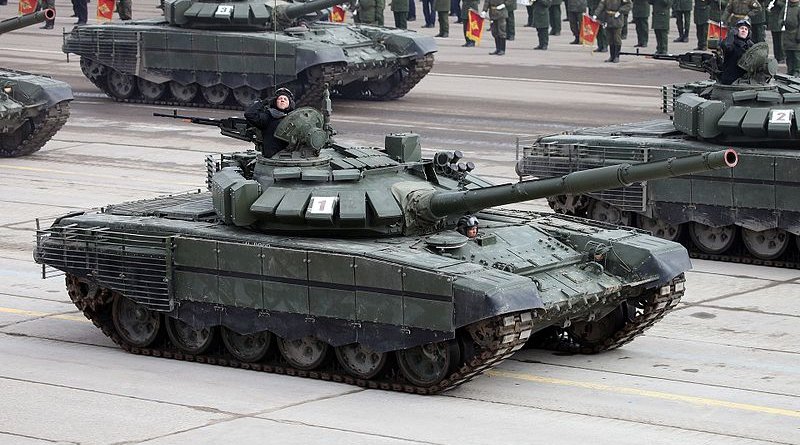Serbia Declares Contract To Acquire Russian Tanks ‘Secret’
By Maja Zivanovic
Serbia’s Defence Ministry told BIRN that it cannot provide information about the contractual conditions under which it is acquiring 30 modernised T-72 tanks from Russia – which officials have described as a donation – without getting Moscow’s consent.
“We are not able to provide any information and answers to questions because the data that has been requested is foreign secret data which means it has been entrusted to the Republic of Serbia with an obligation to keep it secret,” the ministry said in a written response to BIRN’s enquiry.
“The relevant authorities will inform the public in due time of the details of this legal transaction, to an extent consistent with the contract that has been concluded, with the consent of the other contracting party [Russia] and to the extent of the information that can be disclosed,” it added.
Information about the import of the tanks became public for the first time in July, when the Serbian ambassador to Moscow, Miroslav Lazanski, said that Romania was breaking the Convention on the Navigation on the Danube by not allowing the shipment of military vehicles by river through its country due to an EU embargo on Russian arms acquisitions imposed after the annexation of Crimea.
Lazanski said that in the shipment were 30 modernised T-72 tanks and 30 BRDM-2 armoured combat vehicles, which he said that Russia donated to Serbia several years ago.
“The Romanians blocked the transportation of the donated tanks and armoured combat vehicles from Russia to Serbia. They are not allowing the transportation of these vehicles via the Danube, although the provisions of the Convention do not have any part on which this decision of Bucharest could be based,” he told Pink Television on July 13.
Lazanski explained that the Danube is an international waterway, and highlighted that Serbia is a member of the Danube Commission, as is Russia, as a successor to the former Soviet Union.
The Convention, which entered into force in 1949, envisaged free and open navigation on the Danube for the USSR, Bulgaria, Hungary, Romania, Ukraine, Czechoslovakia and Yugoslavia.
According to Serbian media, Serbia agreed to receive 30 T-72 tanks from Russia in 2015. One of them arrived in Serbia in May this year, according to reports.
Meanwhile the 30 BRDM-2 vehicles have also arrived in Serbia. Asked how how Serbia and Russia bypassed the EU embargo on arms acquisitions from Russia, Serbian President Aleksandar Vucic told journalists when the military vehicles were showcased in the southern Serbian city of Nis on July 29 to write that they “fell from the sky”.
However, two days later, Politico reported that the vehicles were transported through Hungarian airspace in a civilian plane to bypass the embargo after Romania blocked the shipment.
Serbian acquisitions of Russian military equipment have proved controversial, with experts criticising Serbian officials for calling the deals ‘donations’, arguing that Serbia would still have to spend large amounts on the modernisation of the equipment.
Russia is a close ally to Serbia and was among the first states to condemn Kosovo’s declaration of independence from Serbia in 2008. It has since voted against the membership of Kosovo in international institutions in line with Belgrade’s policies.
In return, Serbia has refused to join Western sanctions on Russia for its perceived role in fomenting conflict in Ukraine, despite numerous calls from Brussels stating that Serbia – as an EU candidate country – needs to align its foreign policy with that of the union.

